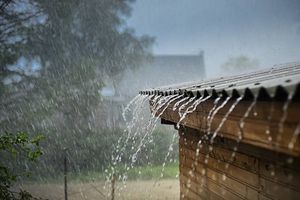Confirmed: Detained sugar in Kenya had metals and was of poor quality

Kebs MD Charles Ongwae respond to questions from MPs about the contraband sugar that is in the county on June 21, 2018. He said lab tests had shown that some of the sugar has copper content as high as 20.7 milligrams per kilogramme, against the recommended two milligrams. PHOTO | JEFF ANGOTE | NATION MEDIA GROUP
What you need to know:
The high presence of copper and lead in the sugar means millions of Kenyans have been exposed to the harmful effects of the heavy metals, which cause a wide range of diseases and disorders.
Nairobi. Samples of contraband sugar detained by the police tested positive for lead and copper, and also did not meet the quality standards for total viable counts for microbiological matter, which determines the shelf life of consumable goods.
The high presence of copper and lead in the sugar means millions of Kenyans have been exposed to the harmful effects of the heavy metals, which cause a wide range of diseases and disorders.
Lead causes cancer of the kidneys, brains and lungs, affects the development of the nervous system and the brain, decreases intelligence in children, and causes anaemia and high blood pressure.
POLARISATION STANDARDS
The sugar also failed to meet polarisation standards, which measure the concentration of sucrose in the sweetener.
Sucrose is the cane extract composed of glucose and fructose that gives sugar its sweet taste, and low quantities mean consumers have to use large quantities to achieve the desired taste. The sugar also had high levels of insoluble matter.
Laboratory tests of the contraband by scientists at Kenya Bureau of Standards show that the sugar is not fit for human consumption, yet there were no indications that the importers planned to refine it further.
BRAZIL
Labelling details show the consignment of white and brown sugar had been milled in Brazil but packed in different countries, including the United Arab Emirates and India.
One consignment showed the country of origin as Kenya. It had been packed by Golden Stream Company but did not have the manufacturer’s details. The Directorate of Criminal Investigations, however, noted that Golden Stream does not have a permit to package white sugar.
Most of the samples of the contraband sugar had higher-than-recommended moisture content and had been infected with yeast and moulds, making the sweetener dangerous for human consumption.
The Kenya Bureau of Standards (Kebs) Thursday said it wants consignments of imported sugar already in the market recalled since they are harmful to human health.
COPPER
Kebs Managing Director Charles Ongwae told the National Assembly Committee on Trade and Industry that lab tests had shown that some of the sugar has copper content as high as 20.7 milligrams per kilogramme, against the recommended two milligrams.
Earlier, Interior Cabinet Secretary Fred Matiang’i had indicated that the contra-band sugar had traces of mercury as well, but none of the lab test results seen by the Nation showed such contamination.
Mr Ongwae, also said no mercury was found in the tested samples.
NOT INSPECTED
However, he warned that the sugar found in Eastleigh, Nairobi, two weeks ago re-packaged in Kabras packs is not fit for human consumption since it was not inspected by Kebs when it entered the country.
“We don’t know where it came from,” he said.
“We are working with the Directorate of Criminal Investigations on how it can be pulled out of the market.”
This means that some of the sugar had found its way into the market by the time the police got wind of the scam.
The MPs questioned Mr Ongwae as three of their colleagues from the sugar belt in western Kenya called on President Uhuru Kenyatta to sack the Cabinet Secretary in the Ministry of Industry, Trade and Cooperatives, Mr Adan Mohammed, for failing to curb the bad imports.




